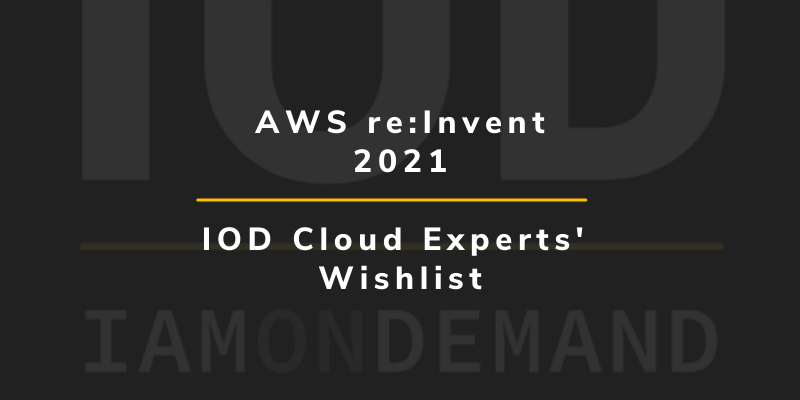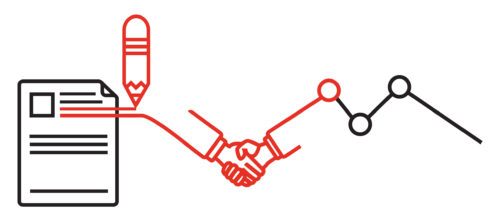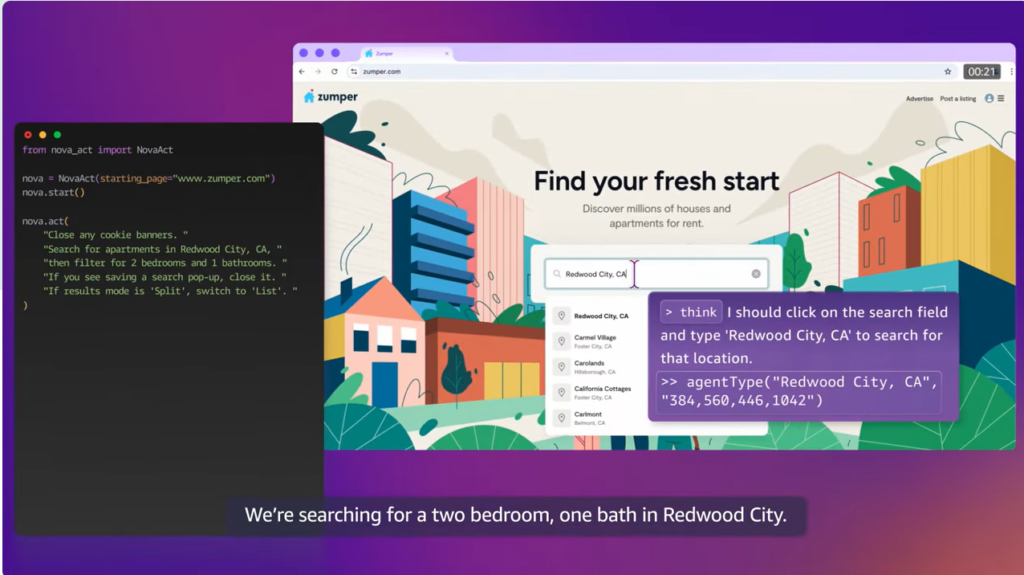AWS re:Invent is back! And our tech experts have yet again given us their predictions and hopes for this year’s edition of Amazon’s much-anticipated conference on all things cloud.
Last year, when IOD experts gave us their expectations for AWS re:Invent 2020, the event had to be completely virtual. But this year, the event will be live and in-person. Also, this is IOD CEO Ofir Nachmani’s 10th year at AWS re:Invent, so make sure you check out what he’s looking for this year too!
So get ready, read up on what our pros have to say, and happy cloud learning!
Kay, Technical Writer and Educator
AWS has always been a critical player in serverless technology. They listen to people’s troubles when using Lambda or Step Functions and improve them year after year, with better pricing and more services to integrate with. Overall, serverless isn’t what it was five years ago; it’s faster, cheaper, and generally more flexible.
But AWS competitors aren’t sleeping, and some have come up with rather impressive solutions. In recent years, edge computing, distributed key-value stores, and serverless databases all got a bit more love outside of AWS. So I hope these categories will get some updates at the next re:invent.
I’m not a huge fan of Lambda’s provisioned concurrency; it felt like a step back for serverless technology, but I get that something had to be done about cold starts. Lambda@Edge functions are massively distributed, so provisioning concurrency might never be an option to solve cold starts here. I’d love to have a solution that was more in the spirit of serverless, with less need to think upfront about the usage of your system.
DynamoDB is incredible, but even after reading the vital educational resources on the topic, it still feels like a very low-level database to me. Serverless Aurora is an interesting idea, but it felt more like an attempt to hook legacy systems into serverless technology than supplying the serverless landscape with an innovative database solution. I would generally prefer if they’d manage to make DynamoDB more flexible so you don’t need to read three books before you can build a schema that grows with your requirements.
And finally, Cloud9. I love these new remote development environments, and Cloud9 is excellent for AWS-related work. I can have one IDE in multiple places without any need to think about synchronization between them. Cloud9 also comes preconfigured to access AWS services, so much of the initial work now just boils down to opening a browser bookmark. Still, I’m much more used to VS Code. I use it for all my tasks outside of AWS, and it always feels like Cloud9 can’t keep up with the developer experience. I hope we see more investments in the remote IDE space.
Generally, I have the feeling AWS is on the right track and should keep going. The engineers at AWS always take into account issues from numerous AWS customers and come up with some pretty creative ideas. So I’m excited about this year’s announcements.
Jorge, Technical Writer and Software Engineer
First off, I would expect new releases for Amazon Braket, AWS’s official quantum computing offering. And the news, I expect, may not only focus on the technology itself, but rather on making the quantum ecosystem more accessible—that is, getting more partnerships with different hardware providers, as well as more cooperation with universities around the world, including, of course, educational centers located in undeveloped countries. As it stands today, quantum computing feels a bit inaccessible for engineers and researchers who are not living in developed countries.
Following this line of thought, instead of new product improvements, I would rather see more progress on making the official documentation better. Now, don’t get me wrong, on the product’s documentation end, AWS already has an excellent hub of documented solutions defined by AWS architects called AWS Solutions Implementations. But in my opinion, they don’t cover some modern stacks for all the verticals (compute, containers, databases, etc.) that appear in the hub. Take a look, for instance, at the solution they shared for distributed load testing. It is somehow a surprise that the only solution proposed on distributed testing comes with JMeter, and not because of JMeter itself. JMeter is great! But there are some other options out there that are worth documenting as well, like solutions based on Locust.
Now, if we move to the documentation that supports AWS certifications, I can tell you that even though there is a vast amount of resources, it seems there isn’t any consolidated hub like what other cloud providers have. Look at GCP, for example. It announced this ambitious aim of getting 40M people trained on their cloud services, and to support this, they created an e-learning platform. What I like about that platform is that it defines clear paths and resources for getting trained on the different certifications. Check out, for instance, the Data Engineer Path they’re offering. It makes it clear what you need to complete for achieving a single certification. I would like to see something similar announced at this next re:Invent. I’m missing such an official e-learning platform for AWS certifications.
Finally, it wouldn’t surprise me if Amazon starts announcing services or products to support this new trending metaverse vision that the Internet is talking about nowadays.
Sudip, Technical Writer and Solution Architect
As a technologist, waiting for AWS re:Invent conferences is almost similar to keenly waiting for a new season of Game of Thrones. The excitement of new product launches, learning goals, and networking opportunities are unbeatable when compared to other conferences in its league. And it seems, I am not the only one who thinks this.

(Source: Werner Vogels Twitter account)
I have used multiple AWS tools and platforms up until now but can’t claim which one I liked the most. The one thing I can claim confidently is how well-researched Amazon’s platforms really are. AWS truly considers various use cases and pain points like none of its competitors do. Having said that, I cannot claim to be an expert on them all—and would keep my wish list focused on a single AWS platform for the next re:Invent.
As someone who is deeply interested in the power of data science, the emerging world of analytics and the role Amazon Athena plays here are naturally intertwined. While Athena was built on PrestoDB as a serverless service, I’ve never understood why Amazon does not utilize the latest (or a more recent version of PrestoDB).
In November 2020, AWS announced the general availability of Athena 2, which uses Presto 0.217. That would indicate that the current version of Athena runs on a Presto version that is more than 50 release cycles old. Obviously, my first wish for the Nov 2021 re:Invent is to see an Athena upgrade with a more recent version of PrestoDB—unless Amazon otherwise clarifies how it has compensated for new features that Presto worked on through all those rigorous releases.
I would also love to see Athena’s support for using connectors and user-defined functions (UDFs) in views. For that matter, the lack of support for building custom UDFs, federated data sources, and external Hive metastores remains a blocker for those who wish to query a view from external reporting tools such as Tableau, etc.
I also have a strong opinion that Amazon needs to seriously consider relaxing the limitations around Athena query and partitions. The fact that Athena allows submitting only one query at a time and running five concurrent queries per account is an enormous deal for data science and event-stream processing use cases. And as if that wasn’t enough, Athena restricts you to creating only 100 partitions with an INSERT INTO query. If your data requires more than that, brace yourself for a hard time or look out for a replacement for Athena.
Let there be no doubt that Athena is a wonderful, feature-rich tool. It continues to be behind the success of several organizations and industries. But with the changing technology landscape, technologists need more. As always, I will keenly await what the next re:Invent has in store for analytics and powerful features to crunch astronomical amounts of data. If anything on my wish list is considered, I would be humbled and be sure to write case studies on how the new enhancements helped create a more powerful analytical world.
Bruno, Strategist, Advisor and Guest Technology Writer
As an AWS APN Ambassador and Community Builder, I have been following the evolution of the AWS ecosystem very closely over the past decade. Long gone are the years when Amazon was an isolated player in the cloud space and every announcement was groundbreaking.
Nowadays, with hundreds of AWS products and services available, it often feels like there is nothing left to announce that could surprise us. Yet, year after year, the annual AWS re:Invent conference comes along to prove me wrong—exciting announcements, engaging discussions, and interesting new ways to discover how others are building on the AWS cloud.
Today, the majority of modern software development is done by levering cloud services. With a big market share, there is a huge number of engineering teams building AWS-based solutions. Yet, just because it’s a cloud-native solution doesn’t mean it’s easy to develop. Regardless of whether you’re using containers or functions, there is an ever-growing complexity in software solutions: demanding requirements, multiple tools, and complex organizational policies.
At this AWS re:Invent 2021, I expect a lot of attention to be given to serverless technologies and solutions—in line with the past editions—with a lot of announcements of built-in integrations with third-party AWS partner organizations. In addition, with engineering teams traditionally having to build complex business logic and getting expert knowledge to implement non-trivial solutions such as the ones that have higher SLAs, a global geographic footprint, or complex compliance requirements, I would expect to see some new services and features that would enable multi-region high availability out of the box (similar to Amazon Aurora Global DB) and test resilience in practice using a chaos engineering methodology (as part of the AWS Fault Injection Simulator).
Two sessions that I’m looking forward to on this topic: “Operational excellence with serverless workloads (ARC313)” and “Assessing your application resiliency using chaos engineering (DOP303)”
With the heated race to increase market share between the three biggest cloud providers, it is natural to expect feature announcements targeting the needs of large enterprises. More than simply aiming to acquire new customers, these announcements will likely be focused on very niche and complex use cases—hybrid scenarios, custom hardware, big monolithic self-hosted services (similar to the newly released Amazon RDS Custom), and cloud governance and operations such as cloud optimization and management.
These will cater to large companies likely already using AWS but still facing challenges in migrating certain types of workloads and struggling to manage multi-cloud environments at a large scale.
Two sessions that caught my eye in this area: “Governance and security for organizations of any size (COP312)” and “Best practices for securing your software delivery lifecycle (DOP313)”
Last, but not least, it wouldn’t be re:Invent without some groundbreaking and forward-thinking product announcements. This year, I expect to see something related to Web 3.0 (perhaps expanding the Amazon Managed Blockchain service) and quantum computing after the recent unveiling of the new AWS Center for Quantum Computing.
As always, I am looking forward to this AWS re:Invent and whatever surprises it might bring us!
Summary
AWS re:Invent is always an epic experience with incredible speakers, surprise announcements, and great networking opportunities. Most importantly, it’s a place where cloud enthusiasts can get together and enjoy yet another leg in Amazon’s cloud journey.
Whatever happens—or doesn’t—our IOD tech experts will be sure to bring you a wrap-up of the event, complete with all the upsides, disappointments, and ways AWS is making the cloud better than ever.
Stay tuned!





